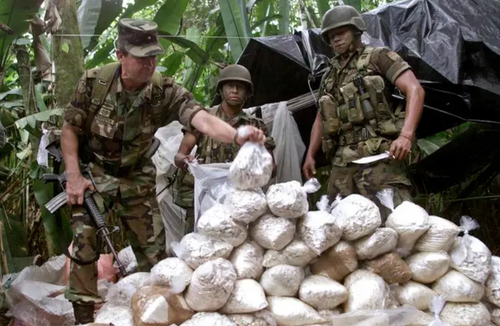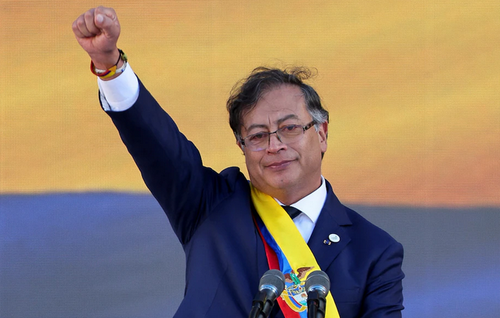By regulating the sale of cocaine, Tascón argued, the government would wrest the market from armed groups and cartels...
By Tyler Durden: Colombia, the world's largest producer of cocaine, and the origin of more than 90% seized in the United States - is considering decriminalizing the drug in an experiment to end Washington DC's never-ending "war on drugs," according to the Washington Post.

After just two weeks in office, the country's first leftist government has proposed an end to "prohibition" - in what would become the first government-regulated market for cocaine. Officials would work with other leftist governments in the region via legislation and alliances in order to "turn their country into a laboratory for drug decriminalization."
"It is time for a new international convention that accepts that the war on drugs has failed," said President Gustavo Petro in his inaugural address this month.

The move would likely upend the country's long-standing (and profitable) counternarcotics relationship with the US - whose officials, both past and present, are sounding the alarm.
A former DEA official, who spoke on the condition of anonymity because his current employer had not authorized him to speak on the matter, said he feared the move would limit the agency’s ability to collaborate with the Colombians on drug trafficking investigations.
“It would incrementally kill the cooperation,” he said. “It would be devastating, not just regionally, but globally. Everyone would be fighting from the outside in.” -WaPo
Jonathan Finer, Biden's White House deputy national security adviser, who met with Petro in the US before his inauguration, said that "the United States and the Biden administration is not a supporter of decriminalization."
The United States has spent billions of dollars to fund a strategy to seek and destroy cocaine plants in the fields of rural Colombia, with US intelligence and other agencies having provided support to Colombia's decades-long military efforts to rid the country of coca, the plant from which cocaine is derived.
Despite more than half-a-century at war on the drug, cocaine production has hit record levels according to recent figures.
Petro's drug czar, Felipe Tascón, says this is a rare opportunity to unite the governments of cocaine-producing countries such as Peru and Bolivia, which are similarly led by leftists.
In his first interview since being named to the job, the economist said he wants to meet with his counterparts in those countries to discuss decriminalization at the regional level. Eventually, he hopes a unified regional bloc can renegotiate international drug conventions at the United Nations.
Domestically, Petro’s administration is planning to back legislation to decriminalize cocaine and marijuana. It plans to put an end to aerial spraying and the manual eradication of coca, which critics say unfairly targets poor rural farmers. By regulating the sale of cocaine, Tascón argued, the government would wrest the market from armed groups and cartels. -WaPo
"Drug traffickers know that their business depends on it being prohibited," said Tascón, adding "If you regulate it like a public market … the high profits disappear and the drug trafficking disappears."
No comments:
Post a Comment